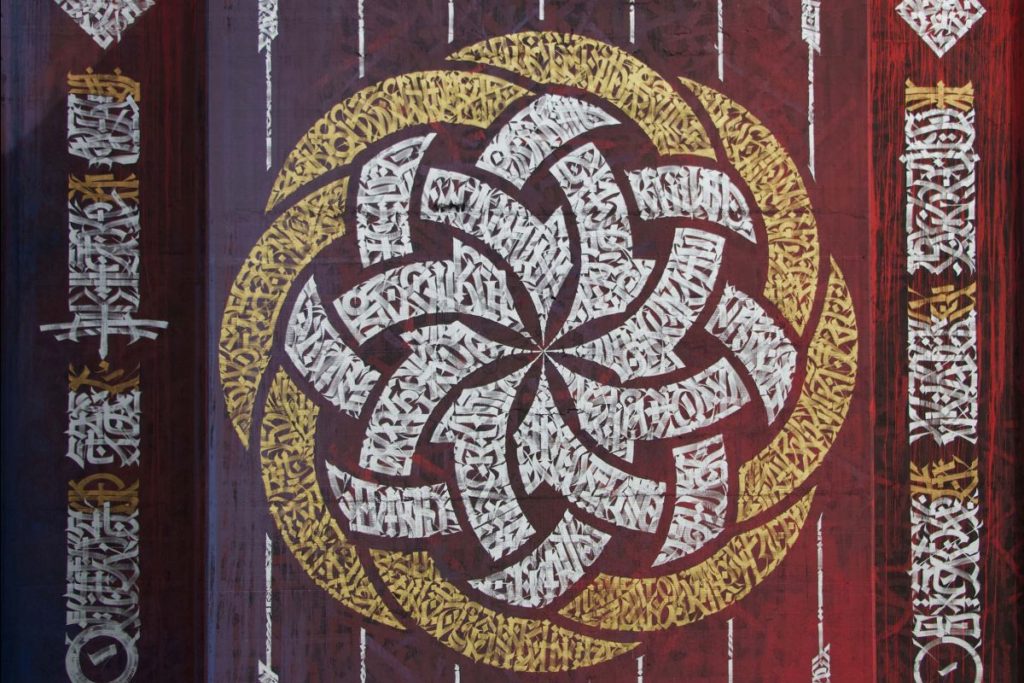
The artist Said Dokins intervenes a building that has symbolized the mafia and the corruption of the last 50 years. Trapani Public Art. Italy.
Throughout Italy there can be found numerous monumental constructions that for some reason were left incomplete. Ambitious infrastructure projects that were never finished and delivered to the citizens. These contemporary ruins have endure, like traces of corruption, testimony of the squandering that prevailed in that country between the 1950s and the 1980s. Due to the characteristics these edifications share, they’ve been recognized as a style called the Incompiuto Siciliano, an architecture built as the big unfinished promise of modernity.
That context is where Said Dokins developed “Babel”, referring to the biblical tale that tells the story of the failure construction of the tallest tower, capable of reaching the sky, because of the lack of communication and understanding. It is a mural intervention on the uncompleted ruins of an architectural brutalist complex that once was supposed to be a water deposit. Four great concrete walls conform the set, through which the artist seeks to explore the multiplicity of voices that converge in Trapani. With The Fardelliana Library and Renato Dosquiavo’s help, Dokins did a revision of antique documents, among which he selected some texts from different time periods that allowed him to reflect on political, popular, social and spiritual languages and how they relate within the vertex of past, present and the Incompiuto, as a temporary process.
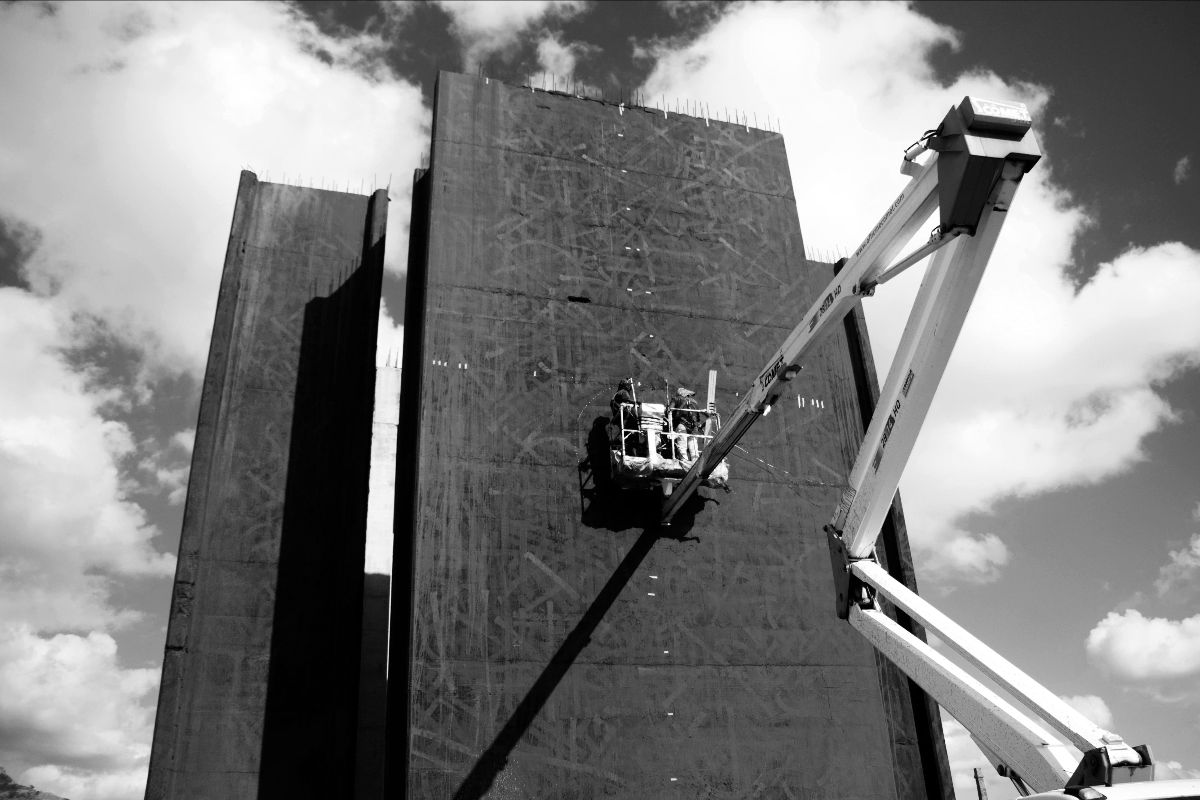
Babel
Pt. 1 – The prisoner
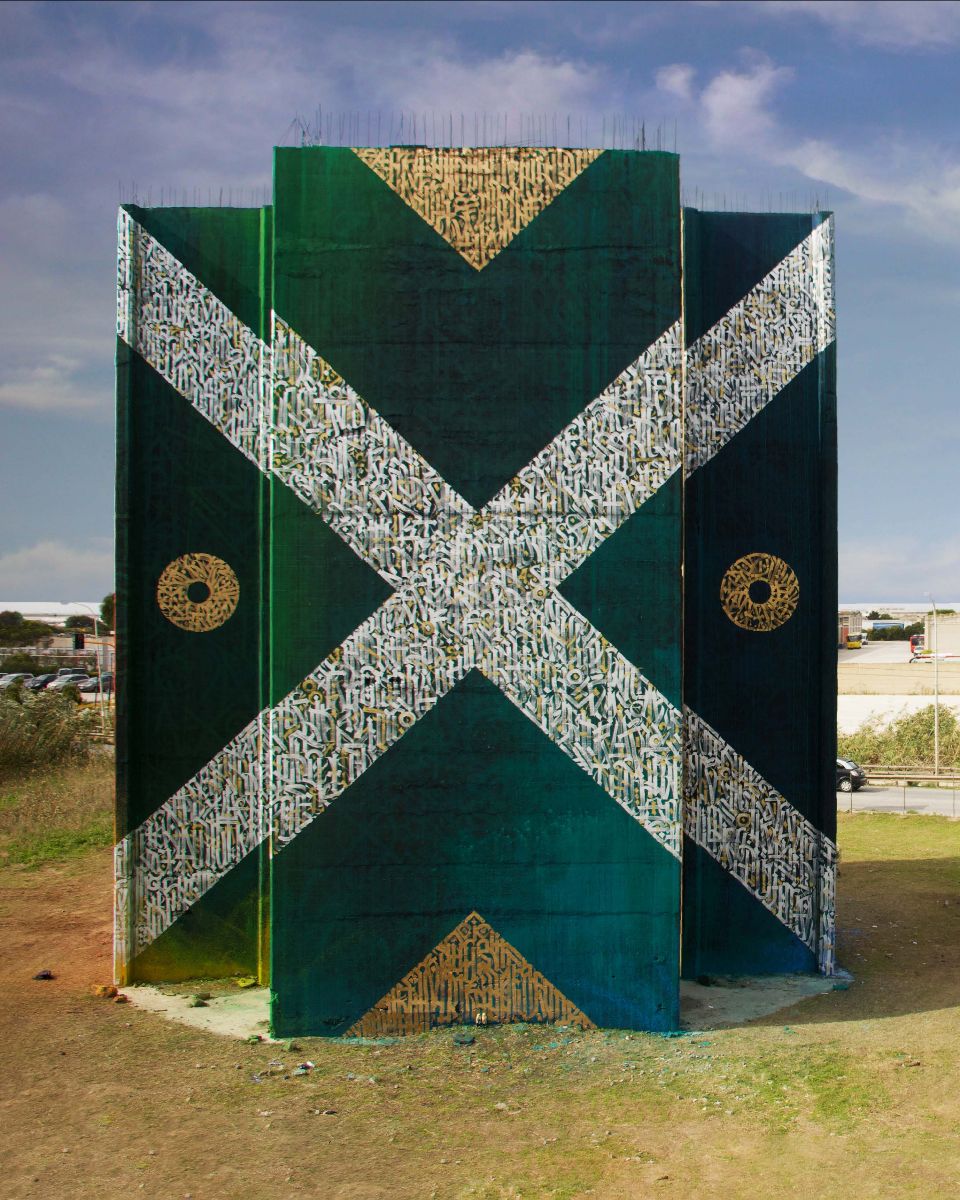
The “X”, conformed by gold and silver letters on a deep green back, is presented as a symbol of cancellation, a way to cross out the logic of Incompiuto, through the re-writing of two ancient texts where the political language expands across time. The first one is the heartfelt call of a trapanese prisoner in Tunisia. It’s the last letter from Alberto Gaetani to his sister, dated in 1776, asking her to intercede for his life so he could go back home. The second text is a Trapanese Facio Communist manifesto, in which they described the rights workers should have access to. Their revolutionary demand, without a doubt, resists all that the Incompiuto stands for.
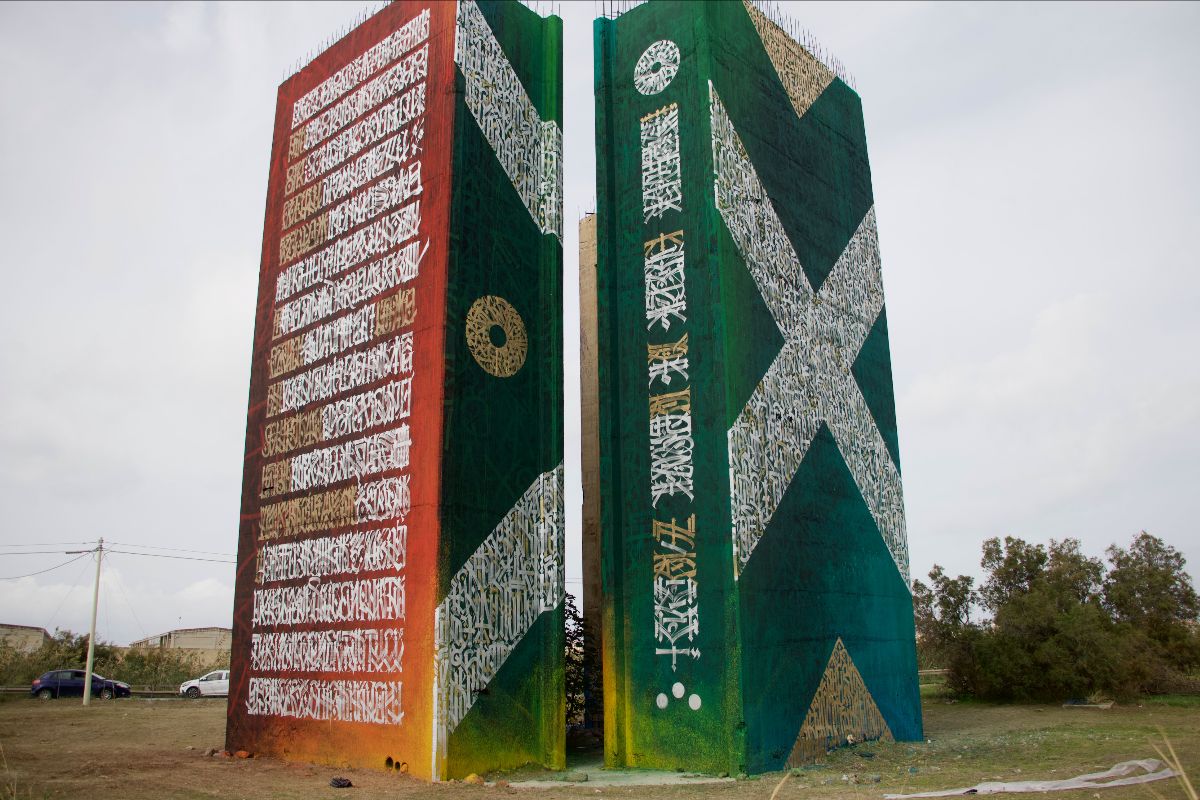
Pt. 2 – The Dialectal Poet Of Trapani
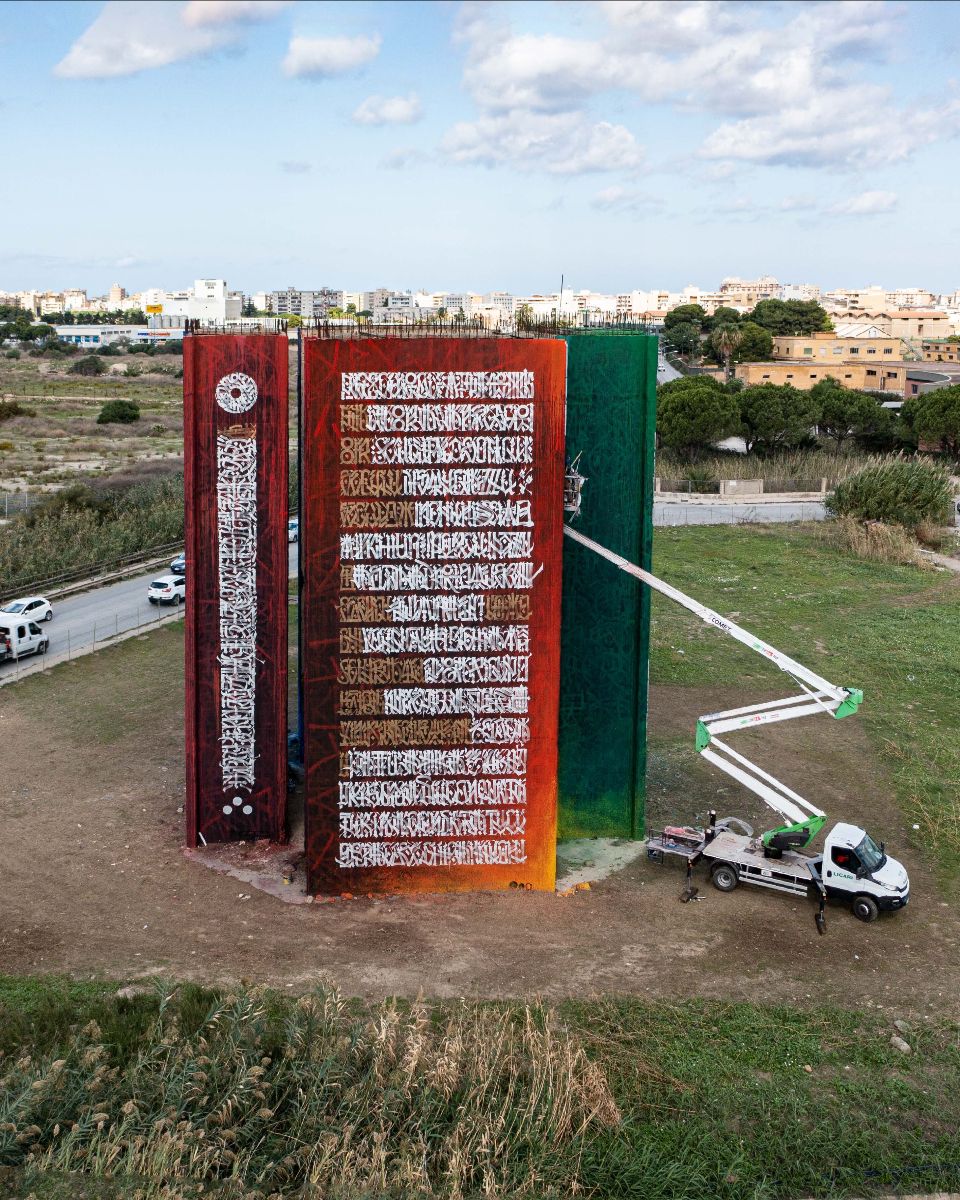
Dokins takes the words from the Trapanese poet, Giuseppe Marco Calvino, bringing to our time his poem “U seculu decimu nonu”, a sharp critic on power abuse released more than 200 years ago. The artist plays with the contrast between the monumentality of his calligraphy in white and gold, which attributes to the text a sense of dignity and a voice of authority denied to the popular language used to write this poem, originally in Trapanese dialect.
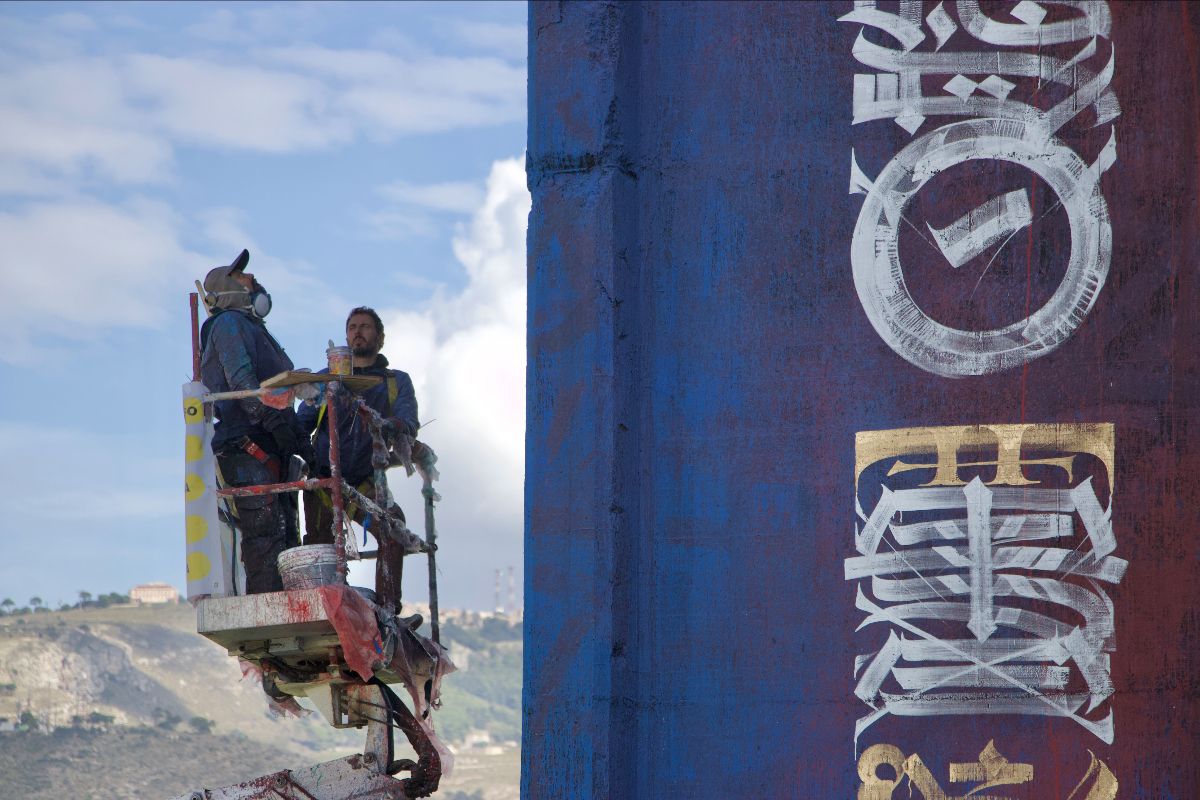
Part 3 – The Slaves
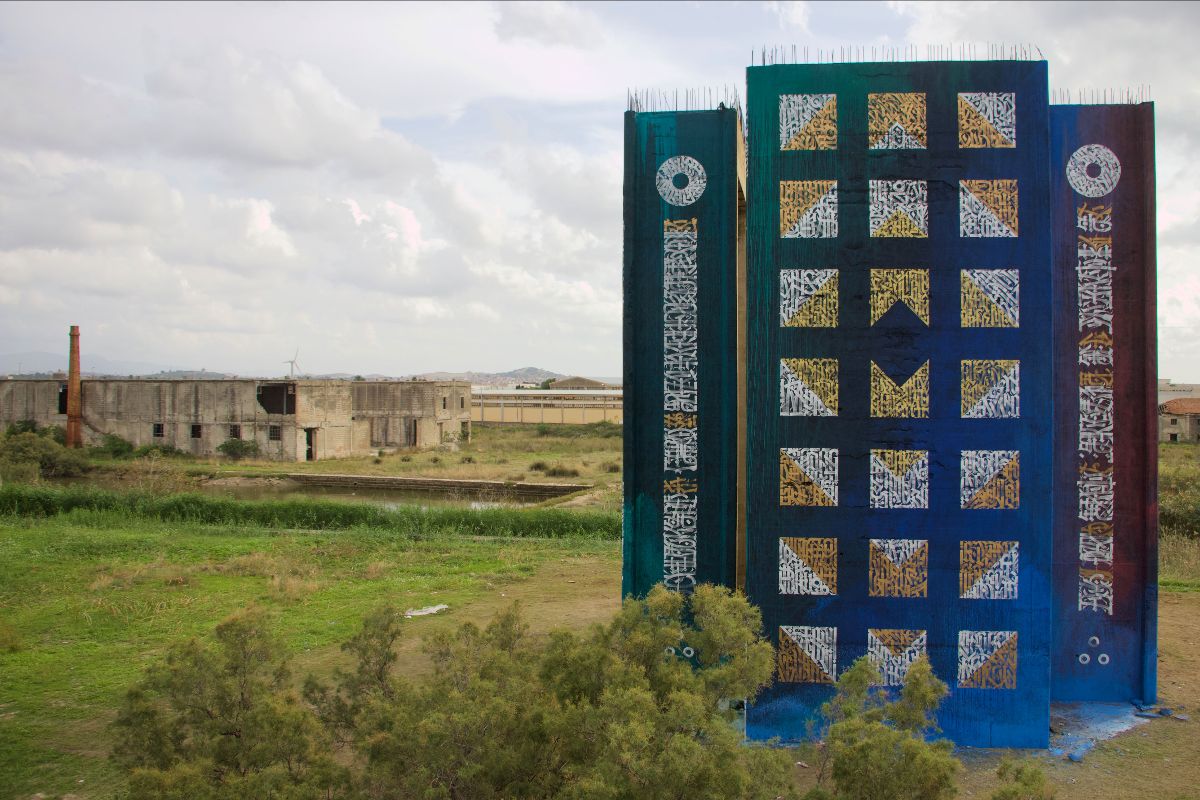
The artist takes a series of writings from the 18th century that contain a list of names, along with their physical characteristics and the work they did. It was a slave inventory. Dokins rewrites those names, making them appear in some sort of binnacle, a huge reticular design that resemble the mother board of a computer, referring to the new cataloguing and control systems, new ways to perpetuate the slavery logic in the contemporary social relations.
Part 4 – The Rose Window

Through the stylization of the iconic rose window of the church of Sant Agostino in Trapani, where symbolic elements of the three principal monotheist religions – Catholicism, Judaism and Islam- can be found coexisting in the same sanctuary, Said Dokins turns the profane, an abandoned concrete wall, in a sacred place. The juxtaposition of traditions and cults reflected in the rose window, it’s an example of the cultural diversity that converges in the Sicilian territory, with its tensions and clash. The composition is constructed by the repetition of the sentence: “Everywhere I write is a sacred place”. Writing becomes a ritual act that serves the artist to dislocate the separation between the sacred and the earthly.
The Unfinished Sicilian From Trapani Rewritten by Said Dokins.
TRAP Trapani Public Art – Sicily
.Festiwall
@saidokins, Babel. Trapani Public Art, Sicily, Italy.
Photos: Vincenzo Cascone
You may consider a modest donation — however much you can afford, when it comes from the heart, it’s the kind of gesture that makes us warm with appreciation.
leave your comment